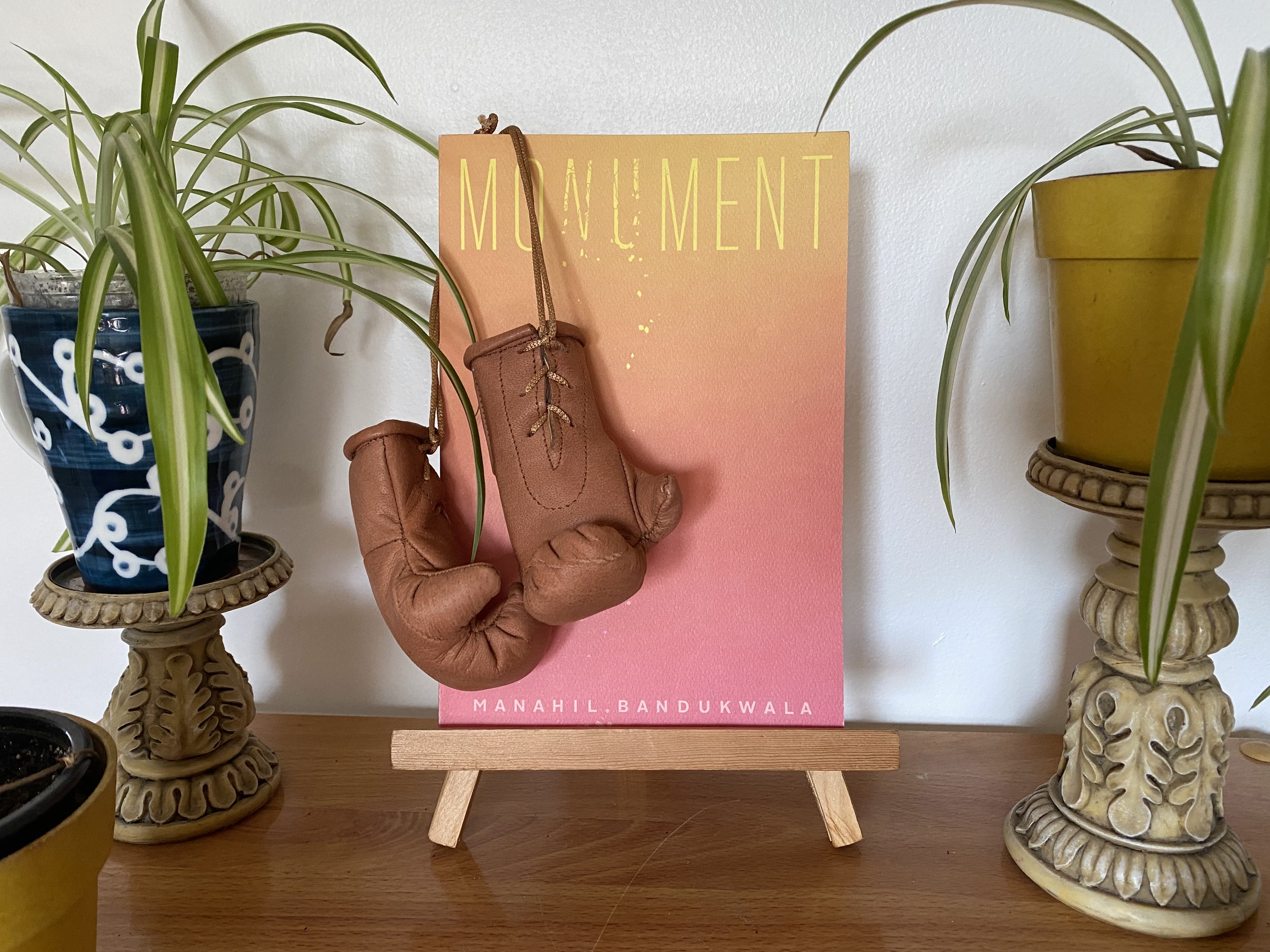Cool-down Time
By Manahil Bandukwala
There’s a third part to the poetry tour series. This post doesn’t have resources or logistical advice, but rather on how to survive the way a book tour suddenly occupies huge parts of your life.
In the summer before MONUMENT came out, I advanced to sparring classes at my kickboxing gym. Once a week, I had the opportunity to take punches right to the face, and to deal them right back. For two minutes, my brain only cared about how to not get hit, and how to land punches and kicks on my sparring partners. During this time, my brain was occupied with all the logistics and moving parts of MONUMENT’s tour. When I wasn’t in MONUMENT-world, I was still working with poetry and writing in my day job. It was very difficult to get my brain to quiet down, but kickboxing and sparring made it possible, even if for a short time.
Last time on the blog, I talked about ways to make planning a book tour easier. Today’s post is about the importance of what I call “cool down activities.” Poetry generally takes up most of my day. These activities give you a chance bring the post-show adrenaline into check so you can finally fall asleep. To distract from any anxiety about things out of your control.
I’m not going to recommend everyone’s cool down activity need mouth-guards and shin pads, but from my experience, it helps so much to have an activity that has nothing to do with poetry. Touring involves a lot of sitting in a cramped vehicle, whether it’s a train, plane, bus, car, or ferry (I’m pretty tired of all those modes of transportation now). It does help to have an activity that has you in the habit of stretching and moving, which in turn makes the physical toll of travelling significantly easier.
I put kickboxing in the title of this post because it sounds a lot cooler than my other major cool down activity—watching bad TV. When I was still too wired after an event to fall asleep, an episode of Gossip Girl went a long way in getting my brain ready for sleep.
Your CanLit News
Subscribe to Open Book’s newsletter to get local book events, literary content, writing tips, and more in your inbox
Mostly, I wasn’t doing much writing at all during this time. It can be difficult to create new work when you’re suddenly pulled back into writing that is, by publication time, years old. I felt somewhat prepared for this moment because I heard similar things from other writer friends who paused writing in the time following their book’s publication.
I did try to incorporate art into my life during this time. I played with crochet, polymer clay, pressed flower art, embroidery, felting, and more. I did some acrylic painting, lots of watercolour, and was able to bring art into my daily practice. I still read a lot, and enjoyed reading for what it was rather than as a practice to improve my own craft.
Writing poetry isn’t a job, as most poets know. It can be frustrating to face—something that can form a huge part of how we move through the world must always come second to working to make rent, pay bills, and feed ourselves. With this in mind, the comfort we can take from writing poetry is that it’s something we can leave and come back to as we please.
The views expressed in the Writer-in-Residence blogs are those held by the authors and do not necessarily reflect the views of Open Book.
Manahil Bandukwala is a multidisciplinary artist and writer. She is the author of Women Wide Awake (Mawenzi House, 2023) and Monument (Brick Books, 2022; shortlisted for the Gerald Lampert Memorial Award), and numerous chapbooks. In 2023, she was selected as a Writer's Trust Rising Star. See her work at manahilbandukwala.com.




